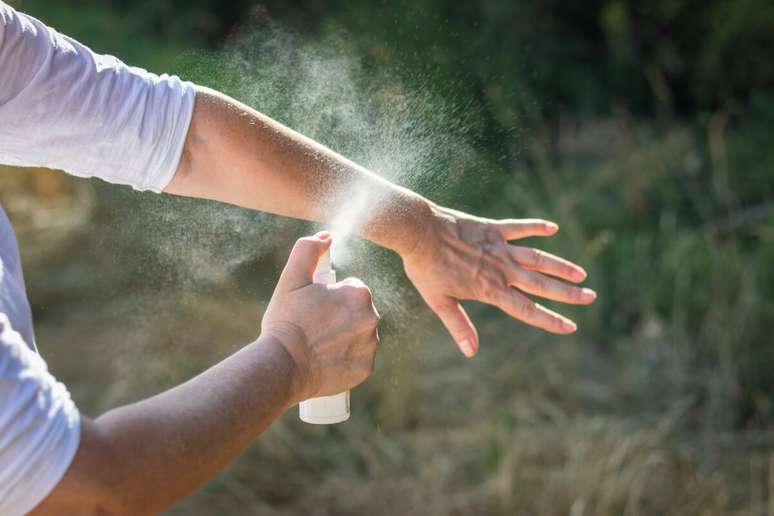The doctor explains the active ingredients that keep mosquitoes away and how to apply the product to the elderly and children
According to the Ministry of Health’s monitoring committee last Monday (19/02), dengue cases in the country have exceeded 650,000, with 113 deaths due to the disease since the beginning of 2024, of which 438 deaths continue to be investigated. Therefore, in addition to other ways to combat the mosquito that transmits the virus, it is important to talk about the use of skin repellents, since many may not be effective against the mosquito or Aedes aegizi.
Repellents recommended by ANVISA
According to dermatologist Geisa Costa, the three main assets against mosquitoes Aedes aegiziapproved by the National Health Surveillance Agency (Anvisa), are:
- DEET (NN-diethylmetholuamide);
- IR3535 (ethyl butylacetylaminopropionate);
- Icaridin (picaridin).
“Repellents are able to confuse the odor receptors, which are located on the antennae of insects. As a result, they have difficulty ‘finding’ the person. The chances of being bitten decrease,” explains the specialist, clinical director and founder from Beauty Art Center.
Cure by application to children
Despite the benefits of repellents, Geisa Costa warns to be careful when applying them to children under two years of age. “Repellents containing the substance DEET should not be used by this age group, since, as… skin It is sensitive, absorbs the active ingredient quickly and there is also the risk that the child will pass his hand over his body and put it in his mouth or scratch his eyes. All of this can lead to reactions and irritation. Between two and 12 years of age, products containing DEET are allowed, as long as the maximum concentration is 10% and without exceeding three applications per day,” he explains.
The dermatologist therefore recommends wearing trousers and a lighter, long-sleeved blouse, investing in mosquito nets for cots and beds, as well as mosquito nets for doors and windows. It is also advisable to avoid heavily wooded places or places close to water, which may have a higher concentration of insects.

Contraindications for the elderly
According to the expert, the contraindications of repellents for elderly They depend on certain factors, such as allergies or irritated skin. “For older people I recommend repellents with icaridin or IR3535, which are gentler and less likely to cause skin irritation. But older people can also consult their doctor if in doubt, as they have your health history and will be able to tell you the solution better”, claims Geisa Costa.
General guidelines for the use of repellents
Below, see some important general guidelines on using repellents:
- Look for these active ingredients on the package: DEET (NN-diethylmetatoluamide), IR3535 (or ethyl butylacetylaminopropionate) or icaridin (or picaridin);
- Check that the label contains information about the action on insects, such as dengue, chikungunya and zika;
- The repellent should be applied to exposed areas of the body. It can only be used over clothes if this information is shown on the packaging;
- Apply repellent afterwards sunscreen;
- Do not apply the product to skin with open wounds;
- Avoid the area near the eyes and mouth;
- If it comes into contact with eyes, wash immediately with running water.
By Ana Marigliani
Source: Terra
Rose James is a Gossipify movie and series reviewer known for her in-depth analysis and unique perspective on the latest releases. With a background in film studies, she provides engaging and informative reviews, and keeps readers up to date with industry trends and emerging talents.







